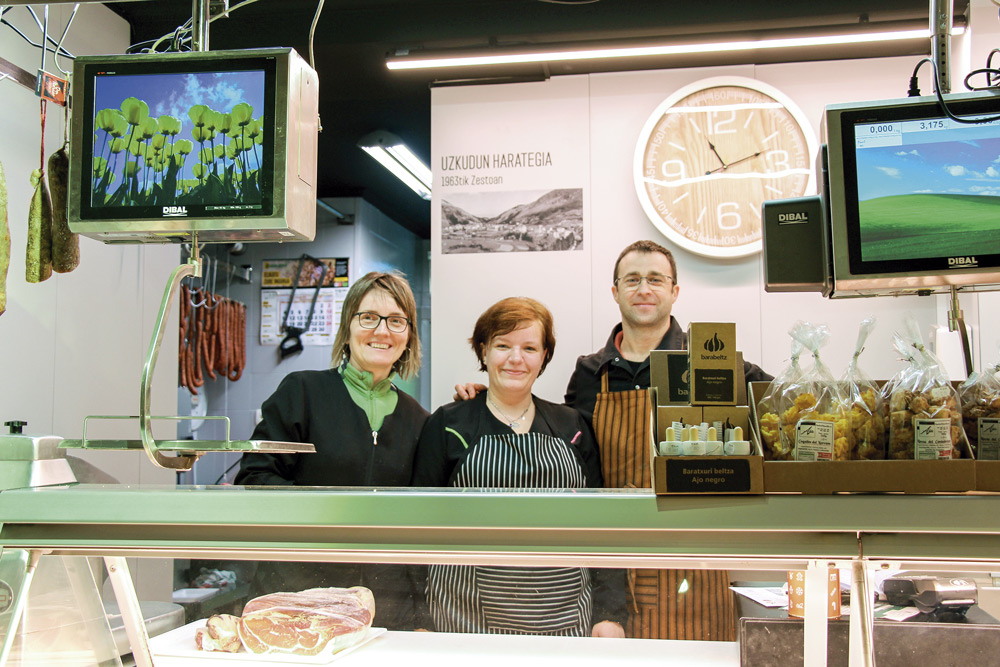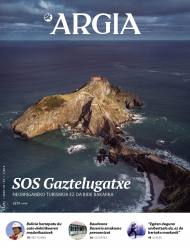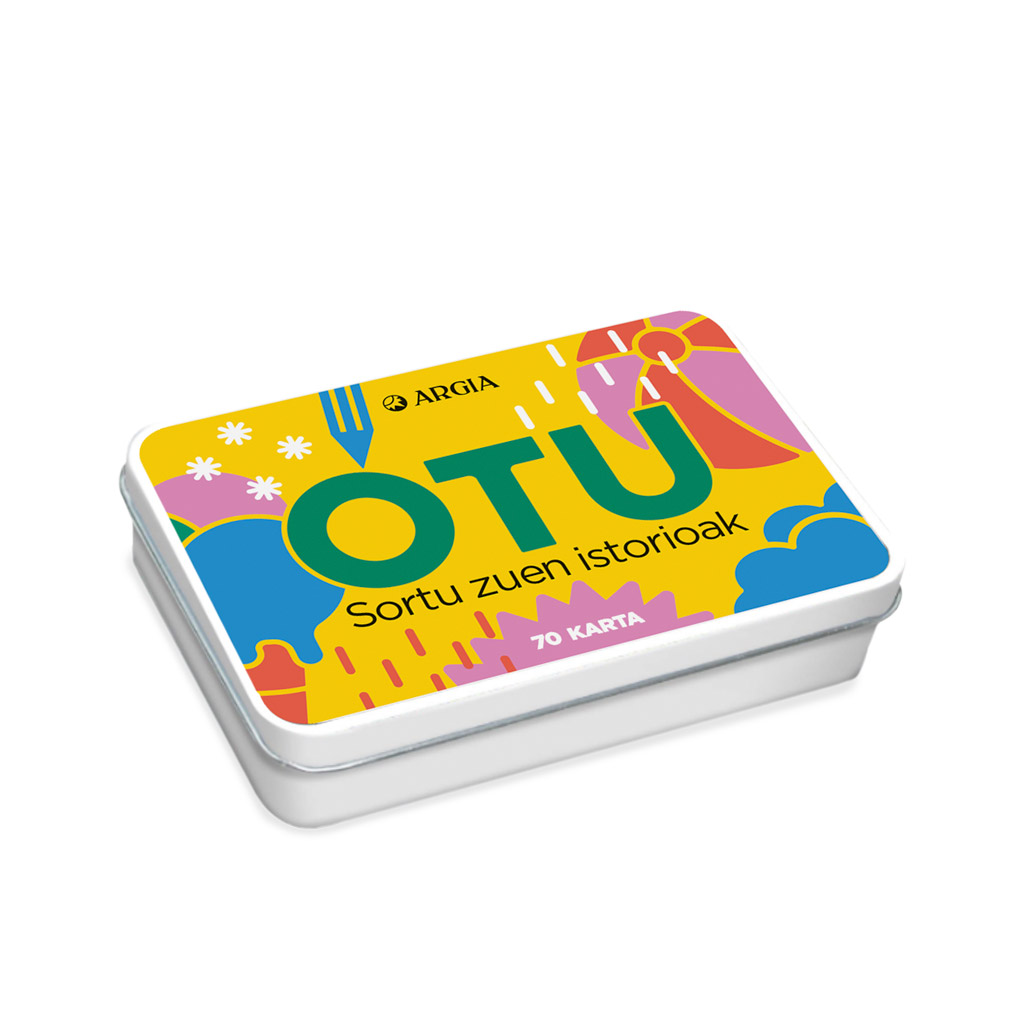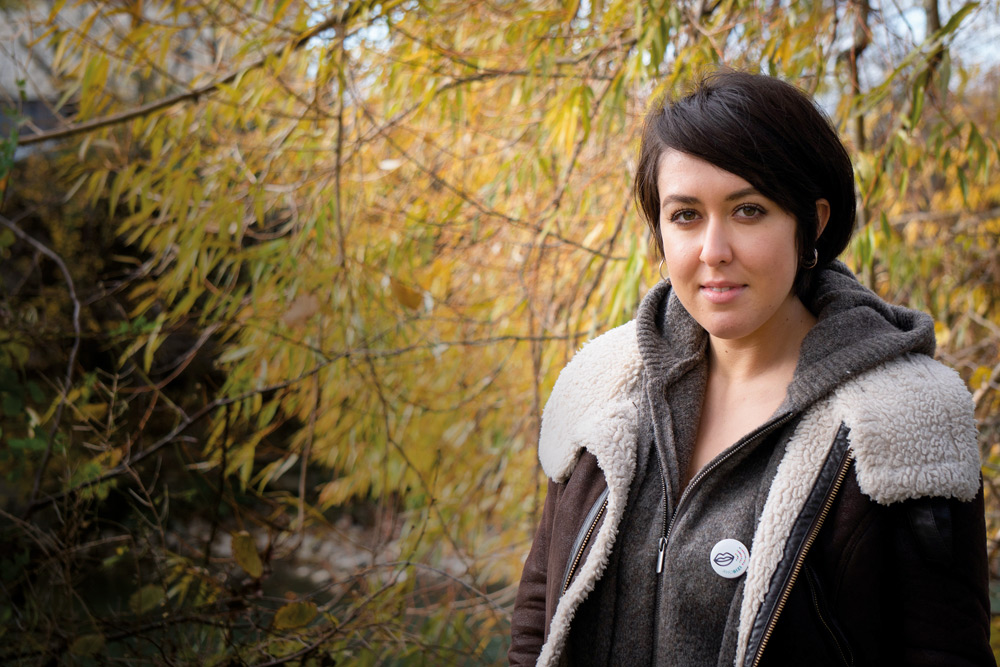"This is Basque Country, people speak Basque and had to learn."
- Marija Louvric was born in Croatia in 1988, in the city of Osijek, in northern Croatia, but was raised in Belisce, in the interior. He arrived in Zestoa in 2017, without knowing Basque or Spanish. He enrolled in the Basque Country AEK of Zestoa and today the Basque language is the language he uses to communicate in the people. The original version of this article has been published in the November issue of Danbolin de Zestoa.

How did he come to Euskal Herria? And how about Zestoa?
Life in Croatia was tough. We had to work a lot to make little money. Life wasn't good, my husband and I worked there, but we couldn't afford all the expenses, the rent, the house stuff, the food ... We didn't get to pay everything.
My husband was a welder there and he also works here. My husband also worked in Italy before coming to the Basque Country; I came to the Basque Country in 2017, to Zestoa, I have been here for two and a half years. First came my husband and then my son and I. When my son and I arrived, we came to live in Zestoa, because my husband works in Azkoitia and close to there is Zestoa.
At first I didn't like Zestoa, but now I really like it. It's very small and it's also sociable. At first I had difficulties with the language, but gradually I am learning Basque.
You have a 12-year-old son who at the age of 10 came to Euskal Herria and Zestoa.
At first he felt lost, but he has learned the street language very quickly. He started going to the town school and the tutor tells me that he is doing well, both in Basque and in Spanish. In Spanish it does less because the first language is the Basque language, but it does very well. He has become easily accustomed to life here, quickly made friendships.
When you arrived, you decided to learn Basque, why the Basque first?
I first thought about learning the most complicated language (Basque) and then easier (Spanish). I thought, “This is Basque Country, they speak Basque and I need to know Basque.” The Basque country was my first choice. As soon as I arrived, I signed up for AEK. When I got there, I could just say, "Hello," and "Goodbye." When I was shopping I didn't speak, on the small screen of the box I saw what I had to pay and I paid for; I know English, but here, apart from the young people, there are few people who know English.
I have Croatian friends in Irun. They don't know anything in Basque. When they came here, they learned Spanish and they don't want to learn Basque. They say they can speak Spanish throughout Spain and only Basque in Euskal Herria.
“Speaking in Basque has approached the Zestoarras. People value learning Basque, even more without knowing Spanish”
How do you experience Euskera’s learning?
At AEK I am very comfortable. It's my third grade, and I've made good friends. So far I had class every day, but today I go twice a week and that gives me the opportunity to combine it with work.
I believe that here the Basque is necessary, if not the Basque will die. Many foreigners come to the Basque Country and study in Spanish. Speaking in Spanish is fine, but I think that in Euskal Herria they should speak in Basque. If language dies, people and culture will be lost. It also makes sense. He who goes to Croatia has to learn Croatian, he who goes to Madrid has to study in Spanish... Therefore, whoever comes here should learn and use the Basque language.
People think that Euskera is very difficult, and it is true that it is difficult, but gradually you can learn.
Moreover, speaking in Basque has approached the Zestoarras. People value learning Basque, even more so without knowing Castilian.
You also participate in the Mintzalagun program.
I started in October 2017 at AEK and in October last year the professor proposed to participate in the Mintzalagun program. At first I thought: “Why does the professor tell me that I need a Mintzalagun?” I thought: “Why is my Basque not good? Why is it good?" I didn't know. But I started to join Sorkunde and it's OK. I learn more Basque and it's easier. The Mintzalagun programme has the advantage and help of improvisation.
This summer you have worked in Euskera in Zumaia. You are now working in a butchery of the people. How are you?
At first it was hard for me to work in Basque, but gradually I have been adapting. Now I'm working on the village Uzkudun butcher, the kitchen. The Basque Country has helped me to find these works; in time I will also need Spanish, but for the moment I settle in Basque. I'm very comfortable. At work, moreover, we always hear Euskadi Irratia and when I do not understand something I ask my colleagues. At home, it's harder for me to hear, because I don't have anyone next to me to help me if I don't understand anything.















